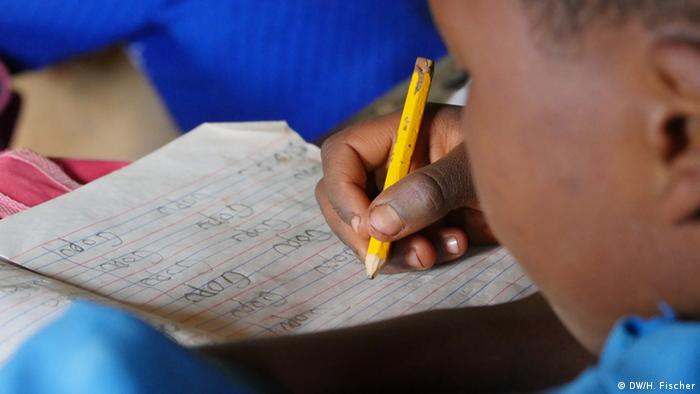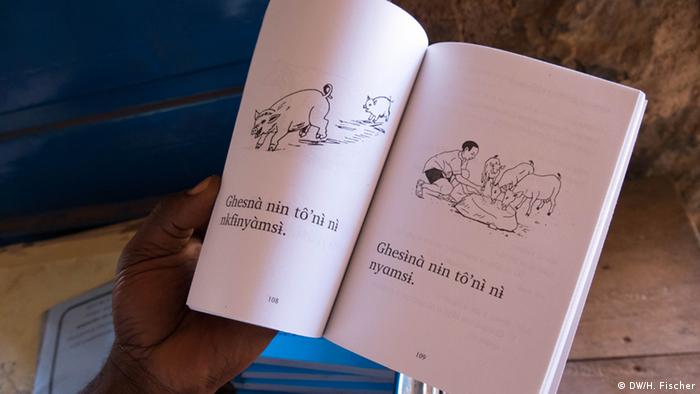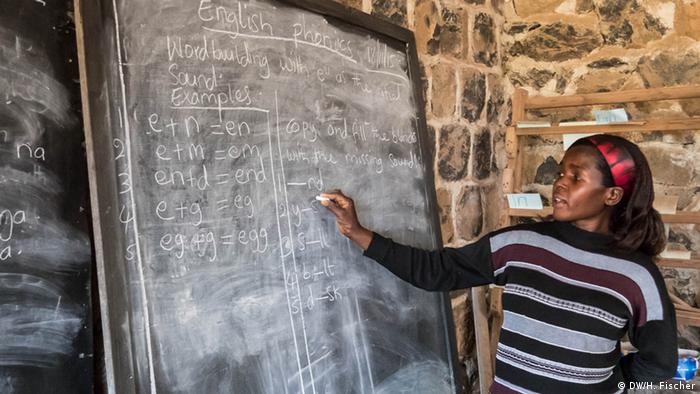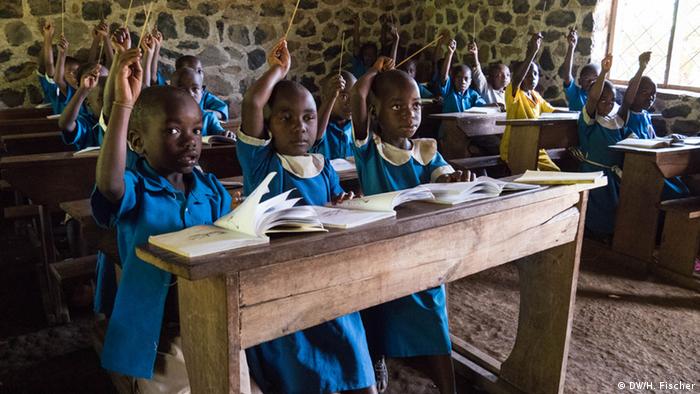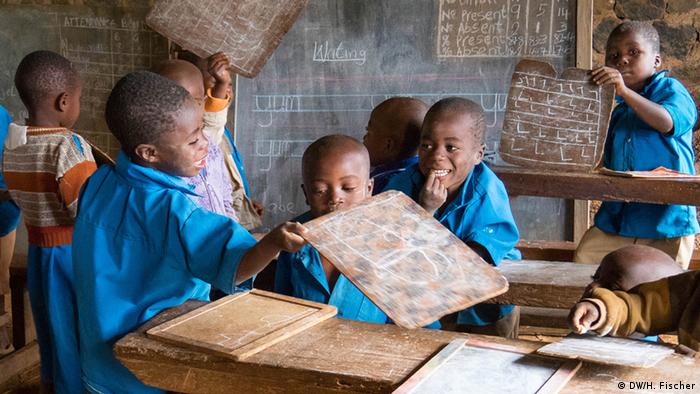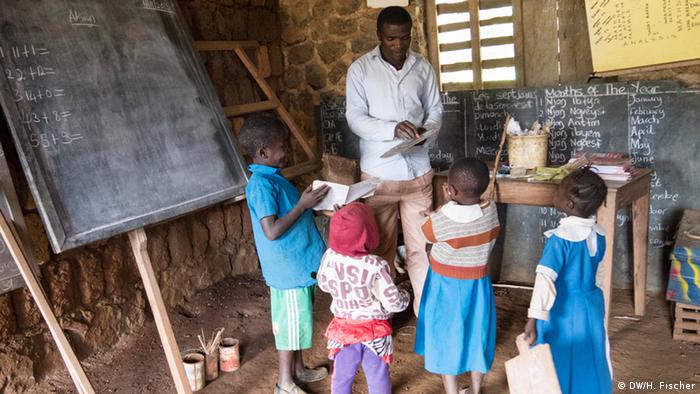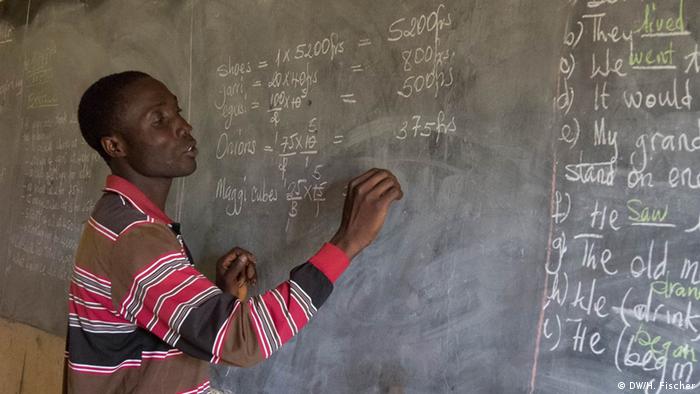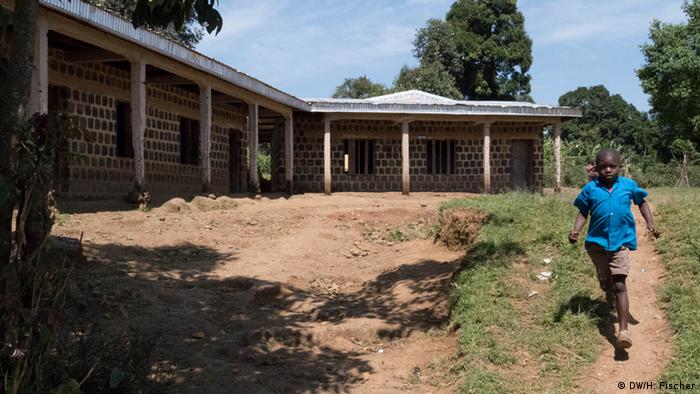In the Nigerian middle and upper classes, it is in the Trend, to speak with the children in English. Linguists and writers have to worry just to the South of the indigenous languages.

The student Titilope Keshinro speaks, of course, the Yoruba, when she meets her fellow students at the University of Ibadan in southwest Nigeria. The language that is spoken in the regions as well as in the neighboring country of Benin by 40 million people, excites you so much that she studied linguistics and Yoruba. Even if the official language in Nigeria is English, says Keshinro: “I profit more, if I speak Yoruba.”
In Ibadan, 50 students in the Bachelor – and Master-programme for Yoruba are currently enrolled. Career opportunities: graduates work as teachers or in the media company. Popular indigenous language, however, is not: In the past few years, several articles and non-representative studies that have appeared to all come to the conclusion that the language is losing speakers, especially, but of interest and importance.
English as a barrier
The fastest-growing language in the South of Nigeria is Pidgin English. In Ibadan, Professor Oye Taiwo, head of Yoruba-observed language centre, for years another Trend: “The elites think the more you speak English with their children, the better they understand English.”
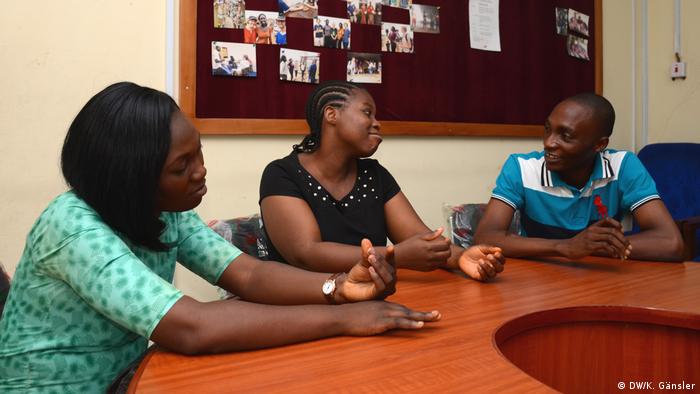
These three students are inspired by their Yoruba studies
In the case of the linguists that provides a shake of the head. With Yoruba as the basis the children would learn English a lot faster. Professor Taiwo and his staff make so much advertising for the return to the indigenous language. “For a while we went to private kindergartens and primary schools to talk to the teachers. Their attitude has changed.” Ultimately, the parents decided, however, about what language is spoken at home.
According to the Ethnologue, a yearly publication on the languages of the world are spoken in Nigeria 517 different languages. In addition to Yoruba, the Hausa, and Igbo languages are the major traffic. At the state Umaru Musa Yar’adua University in Katsina in Northern Nigeria historian Musa Ahmed Jibril, head of the faculty of history, that it is not only the home of indigenous languages is more important, but also to the universities wishes. English – although as the language of the Elite – is often a barrier. “If we are working our research in our native language could be carried out, then we would be much further.” Because many students have difficulties to Express themselves in English: “Speak in their mother language with you, you will see: you have potential.”
Identification through language
University lecturers in Nigeria, however, hardly a voice. More attention has received in the past year, Chimamanda Ngozi Adichie. The world-famous author of “half the sun” and “Americanah” stressed on the occasion of the seventh Igbo annual conference that she speaks with her daughter only Igbo. English would learn later. “Sometimes people are shocked that my child speaks Igbo. Parents who speak Igbo, to say that you don’t want to confuse your children. And then register them to the French classes.” Thus, the author argues for an equivalence of the languages. Important to use in everyday life.
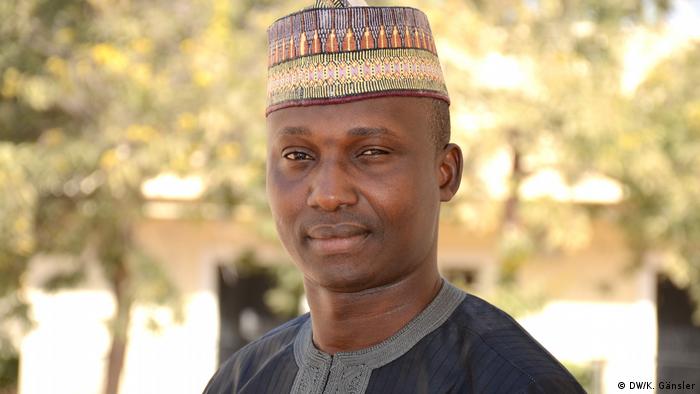
Musa Ahmed Jibril experienced, that students can’t Express in English well
However, it is sometimes complicated, such as in the case of Chidi M. Ukwu, in the capital, Abuja, a media company. His father was Igbo; he grew up, however, Lagos, the Yoruba-speaking area. Ukwu speaks Yoruba but not Igbo. The question of his mother tongue, accompanies him all his life: “many years Ago, a friend of one of her Girlfriends introduced me to. She said: Chidi speaks, moreover, not Igbo. As a result, your girlfriend replied: sorry about That. This encounter I won’t forget. Why pity me, someone, I don’t even know?”
In Nigeria, where Many identify more about their ethnicity than with the state, would people perceived to be strong about their language. “That may have more negative than positive associations,” said Ukwu. Because languages provide a hand for a sense of belonging. On the other hand, it is possible to create with them but also exclude, columns, and Stereotypes.

Nigeria daily Newspapers appear almost exclusively in English
The family of Chidi Ukwu speaks English today. “It is the only language in which we can Express all the good.” His children, he would encourage, however, to learn as many languages as possible. “My daughter seems to like Hausa. It makes the accent, understand words and salutations.”
Learning languages while Playing
The taxi operators Umar Aliyu comes from the state of Adamawa in the North of the country and lives with his family in the capital, Abuja. Also his three sons to learn Hausa – when Playing with friends. At home, he strictly, is only spoken Fulfulde – the native language of Aliyu and his wife. “I decided even before their birth.” Why he insists summarizes Umar Aliyu: “language means identity. One loses his language, loses his identity.”
